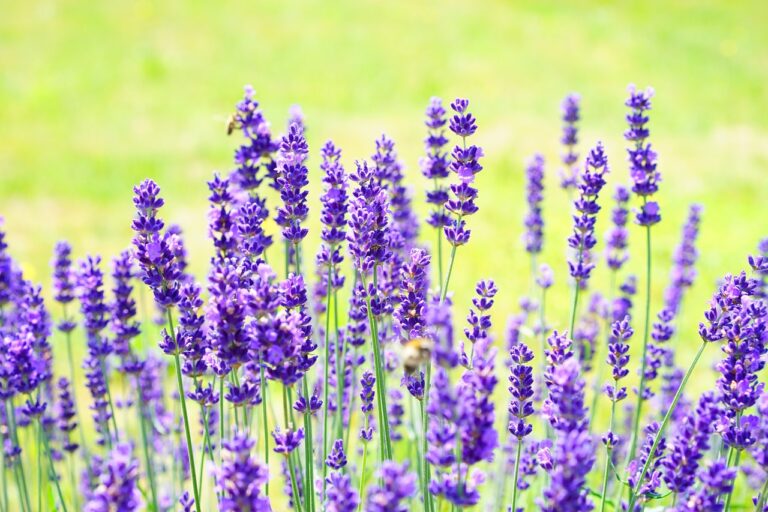Why Do I Crave Being in Nature?

Many of us feel a profound draw towards the natural world, an intrinsic desire to escape the confines of urban environments and immerse ourselves in the tranquility of nature. This longing is not just a fleeting desire for a change of scenery; it taps into deep-seated needs and benefits that are both psychological and physiological. Below are ten reasons why you might find yourself craving the peace and beauty of natural settings.
Why Do I Crave Being in Nature?
1. Stress Reduction
Research consistently shows that spending time in nature can significantly reduce stress levels. The serene environment, away from the hustle and bustle of city life, allows your mind to relax and de-stress. Natural settings have a calming effect, lowering cortisol levels and improving mood. This stress reduction is vital for maintaining mental health and well-being.
Furthermore, the act of being in nature itself, with its fresh air and green spaces, can act as a form of meditation. The simplicity and repetitiveness of natural patterns can help focus the mind and reduce rumination, leading to a more peaceful mental state.
2. Improved Mental Health
Nature acts as a natural healer for the mind. Exposure to green spaces has been linked to reduced symptoms of anxiety, depression, and other mental health issues. The tranquility of natural environments fosters a sense of peace and well-being that can be difficult to find in urban settings.
Additionally, the increased exposure to sunlight found in outdoor settings can boost serotonin levels, further enhancing mood and promoting a sense of happiness. This connection with nature can help individuals feel more grounded and emotionally balanced.
3. Enhanced Physical Health
Regular engagement with nature can lead to significant improvements in physical health. Activities such as hiking, walking, or simply spending time outdoors can increase physical fitness and contribute to a healthier lifestyle. The natural terrain of outdoor environments encourages the body to work harder, strengthening muscles and improving cardiovascular health.
Moreover, exposure to sunlight during outdoor activities increases Vitamin D production, essential for bone health and immune system function. This essential nutrient is difficult to obtain from food sources alone, making sunlight exposure crucial for maintaining optimal health.
4. Increased Creativity
Nature is a boundless source of inspiration. The diverse landscapes, colors, and patterns stimulate the senses and spark creativity. Many artists, writers, and musicians find that time spent in natural settings enhances their creative output.
The quiet and solitude found in nature also provide the perfect environment for reflection and creative thinking. Away from distractions, the mind can wander freely, generating new ideas and solutions to problems. This mental clarity is invaluable for creative pursuits.
5. Better Concentration and Cognitive Function
The restorative effects of nature extend to cognitive functions as well. Natural environments have been shown to improve attention span, memory, and other cognitive abilities. The phenomenon, often referred to as the “attention restoration theory,” suggests that natural settings have a restorative effect on the mind, allowing individuals to concentrate better and perform cognitive tasks more effectively.
This enhanced cognitive function is partly attributed to the reduction of mental fatigue. Nature provides a break from the constant stimulation of urban environments, allowing the brain to reset and recharge.
6. Deepened Sense of Connection
Spending time in nature can foster a deeper sense of connection to the world around us. This connection is not just about appreciating the beauty of the natural world, but also understanding our place within it. It can lead to a greater sense of responsibility towards environmental conservation and a desire to protect natural habitats.
Moreover, this connection often extends to a feeling of unity with other living beings, fostering empathy and compassion. The realization that we are part of a larger ecosystem can be profoundly humbling and enriching.
7. Improved Sleep Quality
The natural rhythms of the outdoor environment can help regulate our own biological clocks. Exposure to natural light helps to reset our circadian rhythms, improving sleep quality and duration. The physical activity associated with being outdoors also contributes to better sleep, as it can help reduce the time it takes to fall asleep and increase deep sleep phases.
Additionally, the absence of artificial light and noise pollution in natural settings can further enhance the quality of sleep, making it easier to fall asleep and stay asleep throughout the night.
8. Increased Immune Function
Regular exposure to nature has been linked to improved immune system function. This benefit is partly due to the “phytoncides,” natural oils produced by plants to protect themselves from germs and insects. Breathing in these substances can increase our levels of white blood cells, helping to fight off infections and diseases.
Additionally, the stress-reducing effects of being in nature can also contribute to a stronger immune system, as stress is known to suppress immune function.
9. Enhanced Social Interactions
Nature has a unique way of bringing people together. Outdoor activities often involve group participation, whether it’s hiking with friends, joining a bird-watching group, or participating in a community garden. These shared experiences can strengthen bonds, encourage teamwork, and foster a sense of community.
Furthermore, the inclusive nature of outdoor spaces means that people from all walks of life can come together, promoting diversity and understanding among different communities.
10. Personal Growth and Self-Reflection
Finally, nature provides a sanctuary for personal growth and self-reflection. The solitude and tranquility of natural settings offer a space for introspection, allowing individuals to contemplate life’s questions and their own personal journey. This time for self-reflection can lead to personal insights, growth, and a clearer sense of purpose.
The challenges and experiences faced while engaging with the natural world can also foster resilience, confidence, and a sense of accomplishment. These personal achievements contribute to overall well-being and self-esteem.
Craving time in nature is a natural response to the numerous benefits it offers. From reducing stress and improving mental health to fostering creativity and a sense of connection, the great outdoors provides a myriad of advantages for our well-being. As we continue to navigate the complexities of modern life, the call of nature serves as a powerful reminder of the essential balance between the human spirit and the natural world.





